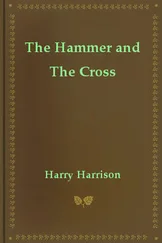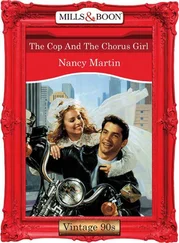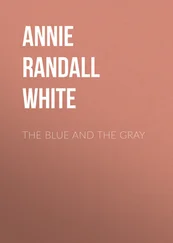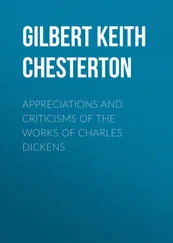Gilbert Chesterton - The Ball and the Cross
Здесь есть возможность читать онлайн «Gilbert Chesterton - The Ball and the Cross» весь текст электронной книги совершенно бесплатно (целиком полную версию без сокращений). В некоторых случаях можно слушать аудио, скачать через торрент в формате fb2 и присутствует краткое содержание. Жанр: Классическая проза, на английском языке. Описание произведения, (предисловие) а так же отзывы посетителей доступны на портале библиотеки ЛибКат.
- Название:The Ball and the Cross
- Автор:
- Жанр:
- Год:неизвестен
- ISBN:нет данных
- Рейтинг книги:5 / 5. Голосов: 1
-
Избранное:Добавить в избранное
- Отзывы:
-
Ваша оценка:
- 100
- 1
- 2
- 3
- 4
- 5
The Ball and the Cross: краткое содержание, описание и аннотация
Предлагаем к чтению аннотацию, описание, краткое содержание или предисловие (зависит от того, что написал сам автор книги «The Ball and the Cross»). Если вы не нашли необходимую информацию о книге — напишите в комментариях, мы постараемся отыскать её.
The Ball and the Cross — читать онлайн бесплатно полную книгу (весь текст) целиком
Ниже представлен текст книги, разбитый по страницам. Система сохранения места последней прочитанной страницы, позволяет с удобством читать онлайн бесплатно книгу «The Ball and the Cross», без необходимости каждый раз заново искать на чём Вы остановились. Поставьте закладку, и сможете в любой момент перейти на страницу, на которой закончили чтение.
Интервал:
Закладка:
Mr. Turnbull made some movement rather of surrender than assent, and the doctor caught it up exquisitely, showing even more of his two front teeth. “I am sure Mr. Wilkinson will excuse us a moment.” And with flying frock-coat he led Turnbull rapidly round the corner of a path.
“My dear sir,” he said, in a quite affectionate manner, “I do not mind telling you–you are such a very hopeful case– you understand so well the scientific point of view; and I don’t like to see you bothered by the really hopeless cases. They are monotonous and maddening. The man you have just been talking to, poor fellow, is one of the strongest cases of pure idee fixe that we have. It’s very sad, and I’m afraid utterly incurable. He keeps on telling everybody”–and the doctor lowered his voice confidentially–“he tells everybody that two people have taken is yacht. His account of how he lost it is quite incoherent.”
Turnbull stamped his foot on the gravel path, and called out: “Oh, I can’t stand this. Really–”
“I know, I know,” said the psychologist, mournfully; “it is a most melancholy case, and also fortunately a very rare one. It is so rare, in fact, that in one classification of these maladies it is entered under a heading by itself–Perdinavititis, mental inflammation creating the impression that one has lost a ship. Really,” he added, with a kind of half-embarrassed guilt, “it’s rather a feather in my cap. I discovered the only existing case of perdinavititis.”
“But this won’t do, doctor,” said Turnbull, almost tearing his hair, “this really won’t do. The man really did lose a ship. Indeed, not to put too fine a point on it, I took his ship.”
Dr. Quayle swung round for an instant so that his silk-lined overcoat rustled, and stared singularly at Turnbull. Then he said with hurried amiability: “Why, of course you did. Quite so, quite so,” and with courteous gestures went striding up the garden path. Under the first laburnum-tree he stopped, however, and pulling out his pencil and notebook wrote down feverishly: “Singular development in the Elenthero-maniac, Turnbull. Sudden manifestation of Rapinavititis–the delusion that one has stolen a ship. First case ever recorded.”
Turnbull stood for an instant staggered into stillness. Then he ran raging round the garden to find MacIan, just as a husband, even a bad husband, will run raging to find his wife if he is full of a furious query. He found MacIan stalking moodily about the half-lit garden, after his extraordinary meeting with Beatrice. No one who saw his slouching stride and sunken head could have known that his soul was in the seventh heaven of ecstasy. He did not think; he did not even very definitely desire. He merely wallowed in memories, chiefly in material memories; words said with a certain cadence or trivial turns of the neck or wrist. Into the middle of his stationary and senseless enjoyment were thrust abruptly the projecting elbow and the projecting red beard of Turnbull. MacIan stepped back a little, and the soul in his eyes came very slowly to its windows. When James Turnbull had the glittering sword-point planted upon his breast he was in far less danger. For three pulsating seconds after the interruption MacIan was in a mood to have murdered his father.
And yet his whole emotional anger fell from him when he saw Turnbull’s face, in which the eyes seemed to be bursting from the head like bullets. All the fire and fragrance even of young and honourable love faded for a moment before that stiff agony of interrogation.
“Are you hurt, Turnbull?” he asked, anxiously.
“I am dying,” answered the other quite calmly. “I am in the quite literal sense of the words dying to know something. I want to know what all this can possibly mean.”
MacIan did not answer, and he continued with asperity: “You are still thinking about that girl, but I tell you the whole thing is incredible. She’s not the only person here. I’ve met the fellow Wilkinson, whose yacht we lost. I’ve met the very magistrate you were hauled up to when you broke my window. What can it mean–meeting all these old people again? One never meets such old friends again except in a dream.”
Then after a silence he cried with a rending sincerity: “Are you really there, Evan? Have you ever been really there? Am I simply dreaming?”
MacIan had been listening with a living silence to every word, and now his face flamed with one of his rare revelations of life.
“No, you good atheist,” he cried; “no, you clean, courteous, reverent, pious old blasphemer. No, you are not dreaming–you are waking up.”
“What do you mean?”
“There are two states where one meets so many old friends,” said MacIan; “one is a dream, the other is the end of the world.”
“And you say–”
“I say this is not a dream,” said Evan in a ringing voice.
“You really mean to suggest–” began Turnbull.
“Be silent! or I shall say it all wrong,” said MacIan, breathing hard. “It’s hard to explain, anyhow. An apocalypse is the opposite of a dream. A dream is falser than the outer life. But the end of the world is more actual than the world it ends. I don’t say this is really the end of the world, but it’s something like that–it’s the end of something. All the people are crowding into one corner. Everything is coming to a point.”
“What is the point?” asked Turnbull.
“I can’t see it,” said Evan; “it is too large and plain.”
Then after a silence he said: “I can’t see it–and yet I will try to describe it. Turnbull, three days ago I saw quite suddenly that our duel was not right after all.”
“Three days ago!” repeated Turnbull. “When and why did this illumination occur?”
“I knew I was not quite right,” answered Evan, “the moment I saw the round eyes of that old man in the cell.”
“Old man in the cell!” repeated his wondering companion. “Do you mean the poor old idiot who likes spikes to stick out?”
“Yes,” said MacIan, after a slight pause, “I mean the poor old idiot who likes spikes to stick out. When I saw his eyes and heard his old croaking accent, I knew that it would not really have been right to kill you. It would have been a venial sin.”
“I am much obliged,” said Turnbull, gruffly.
“You must give me time,” said MacIan, quite patiently, “for I am trying to tell the whole truth. I am trying to tell more of it than I know.”
“So you see I confess”–he went on with laborious distinctness– “I confess that all the people who called our duel mad were right in a way. I would confess it to old Cumberland Vane and his eye-glass. I would confess it even to that old ass in brown flannel who talked to us about Love. Yes, they are right in a way. I am a little mad.”
He stopped and wiped his brow as if he were literally doing heavy labour. Then he went on:
“I am a little mad; but, after all, it is only a little madness. When hundreds of high-minded men had fought duesl about a jostle with the elbow or the ace of spades, the whole world need not have gone wild over my one little wildness. Plenty of other people have killed themselves between then and now. But all England has gone into captivity in order to take us captive. All England has turned into a lunatic asylum in order to prove us lunatics. Compared with the general public, I might positively be called sane.”
He stopped again, and went on with the same air of travailing with the truth:
“When I saw that, I saw everything; I saw the Church and the world. The Church in its earthly action has really touched morbid things– tortures and bleeding visions and blasts of extermination. The Church has had her madnesses, and I am one of them. I am the massacre of St. Bartholomew. I am the Inquisition of Spain. I do not say that we have never gone mad, but I say that we are fit to act as keepers to our enemies. Massacre is wicked even with a provocation, as in the Bartholomew. But your modern Nietzsche will tell you that massacre would be glorious without a provocation. Torture should be violently stopped, though the Church is doing it. But your modern Tolstoy will tell you that it ought not to be violently stopped whoever is doing it. In the long run, which is most mad– the Church or the world? Which is madder, the Spanish priest who permitted tyranny, or the Prussian sophist who admired it? Which is madder, the Russian priest who discourages righteous rebellion, or the Russian novelist who forbids it? That is the final and blasting test. The world left to itself grows wilder than any creed. A few days ago you and I were the maddest people in England. Now, by God! I believe we are the sanest. That is the only real question–whether the Church is really madder than the world. Let the rationalists run their own race, and let us see where they end. If the world has some healthy balance other than God, let the world find it. Does the world find it? Cut the world loose,” he cried with a savage gesture. “Does the world stand on its own end? Does it stand, or does it stagger?”
Читать дальшеИнтервал:
Закладка:
Похожие книги на «The Ball and the Cross»
Представляем Вашему вниманию похожие книги на «The Ball and the Cross» списком для выбора. Мы отобрали схожую по названию и смыслу литературу в надежде предоставить читателям больше вариантов отыскать новые, интересные, ещё непрочитанные произведения.
Обсуждение, отзывы о книге «The Ball and the Cross» и просто собственные мнения читателей. Оставьте ваши комментарии, напишите, что Вы думаете о произведении, его смысле или главных героях. Укажите что конкретно понравилось, а что нет, и почему Вы так считаете.









